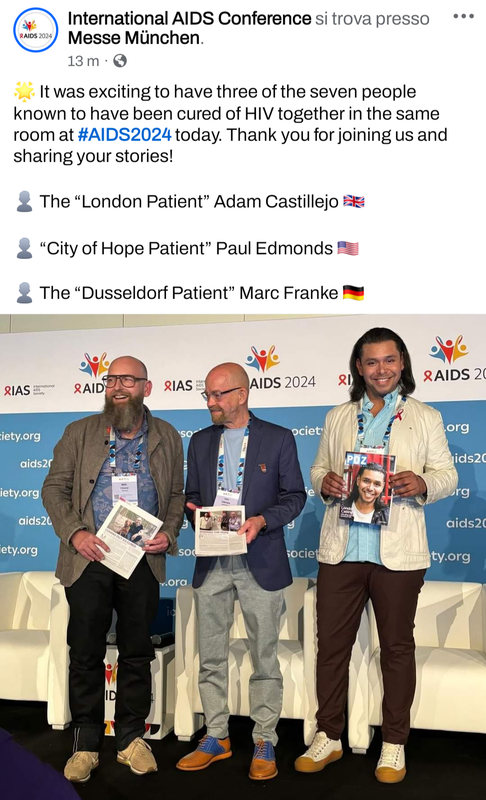Dora ha scritto: ↑martedì 9 luglio 2024, 5:18Come da tradizione, a inizio AIDS 2024, il 22 luglio, UNAIDS presenterà un report su nuovi dati, che dovrebbero dimostrare la possibilità di raggiungere l'obiettivo della "fine dell'AIDS" entro il 2030 - da intendersi come "la fine dell'AIDS come minaccia alla salute pubblica": The Urgency of Now: AIDS at a Crossroads.
Naturalmente questo è subordinato alle decisioni che i leader mondiali prenderanno quest'anno riguardo ai finanziamenti e alle restrizioni dei diritti umani.
Ed ecco il comunicato stampa di UNAIDS, dal quale si evince che sono consapevoli che una PrEP efficace come pare essere il lenacapavir per mettere davvero fine alle nuove infezioni deve arrivare ovunque nel mondo, ma sostengono anche che è Gilead a dover formulare un prezzo per i Paesi a basso reddito che non è neppure lontanamente avvicinabile a quei 42.250 dollari che sembrano essere il prezzo fissato per i ricchi che se lo potranno permettere.Dora ha scritto: ↑martedì 9 luglio 2024, 10:05Proprio su Politico, ma questa volta politico.com, la settimana scorsa ho letto una notizia che rende ancora più un wishful thinking l'obiettivo del 2030: l'amministrazione Biden ha in animo di tagliare di più del 6% i finanziamenti a PEPFAR nel 2025.
Forse in Europa si potrà arrivare a una distribuzione a pioggia del Lenacapavir, anche se dubito che i nostri sistemi sanitari in sofferenza si faranno carico della prevenzione delle infezioni firmata Gilead (basta vedere la lentezza con cui si sta diffondendo il Truvada).
Ma il resto del mondo, soprattutto l'Africa, conta sul President’s Emergency Plan for AIDS Relief.
Di che cosa parla, quindi, UNAIDS? Sembra che inseguano farfalle.
Quindi non saranno gli USA tramite PEPFAR, non altri governi, non i grandi enti internazionali, ma sarà un privato come Gilead a doversi fare carico di mettere fine all'epidemia.
Pertanto UNAIDS si aggiunge ai 300 esperti e attivisti che chiedono in una lettera aperta una versione generica del lenacapavir per i Paesi dove l'epidemia infuria di più.

* Gilead’s Twice-Yearly Lenacapavir Demonstrated 100% Efficacy and Superiority to Daily Truvada® for HIV Prevention


